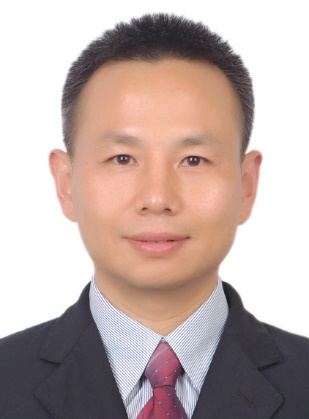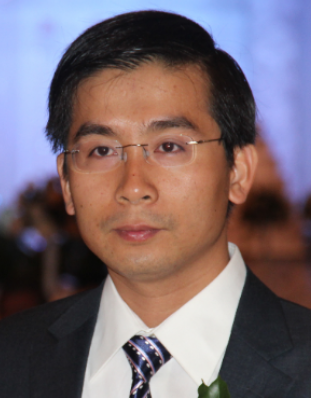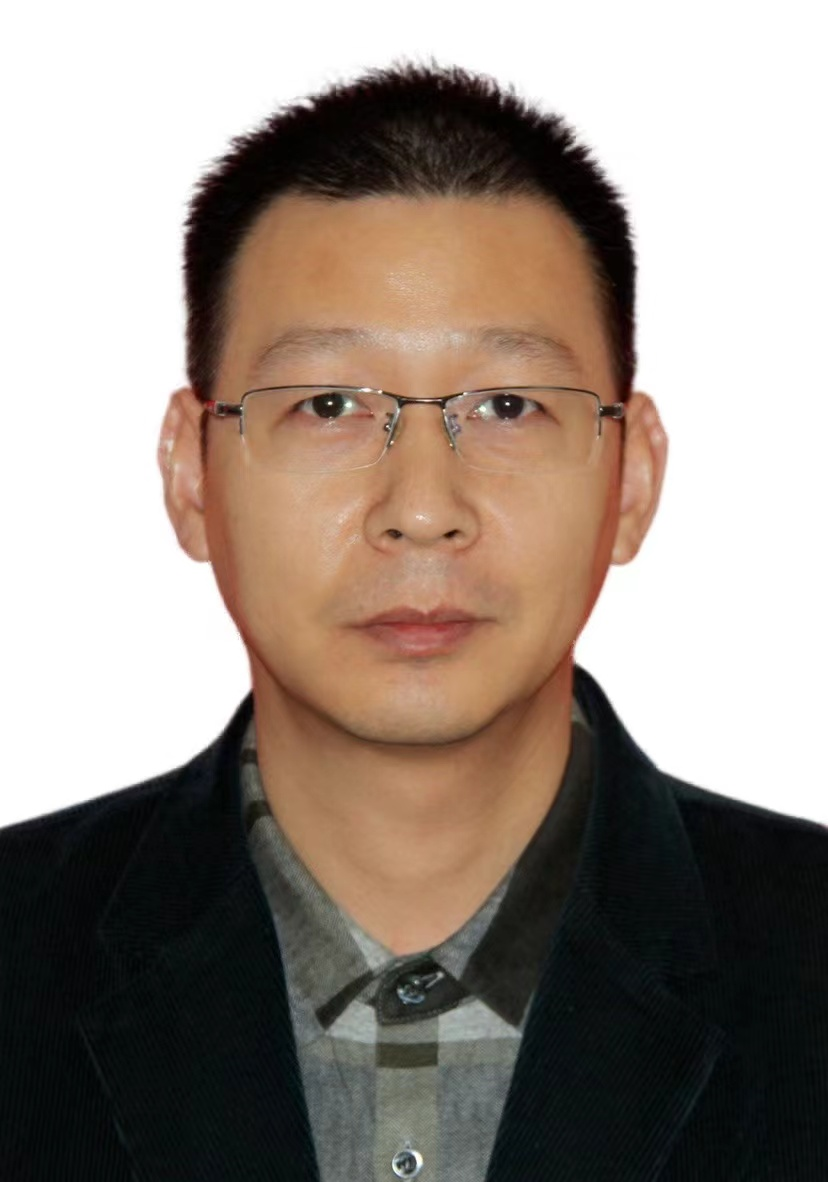
Keynote Speakers
Keynote Speaker |
| Professor Geyong Min, University of Exeter, U.K. IEEE Fellow, National Science Fund for Distinguished Young Scholars Bio:Professor Geyong Min is a Chair in High Performance Computing and Networking in the Department of Computer Science at the University of Exeter, UK. His research interests include Mobile Internet, Cloud and Edge Computing, Artificial Intelligence, Systems Modelling and Performance Engineering. His recent research has been supported by European Horizon-2020, UK EPSRC, Royal Society, Royal Academy of Engineering, and industrial partners. He has published more than 200 research papers in leading international journals including IEEE/ACM Transactions on Networking, IEEE Journal on Selected Areas in Communications, IEEE Transactions on Computers, IEEE Transactions on Parallel and Distributed Systems, and IEEE Transactions on Wireless Communications, and at reputable international conferences, such as SIGCOMM-IMC, INFOCOM, and ICDCS. He is an Associated Editor of several international journals, e.g., IEEE Transactions on Computers, and IEEE Transactions on Cloud Computing. He served as the General Chair or Program Chair of a number of international conferences in the area of Information and Communications Technologies. Title:Resource Deployment and Service Optimization for Intelligent Edge Networks Abstract:Intelligent Edge Networks are rapidly emerging as critical infrastructure supporting the transformation toward a more intelligent society. However, the distributed and heterogeneous nature of edge resources has posed several key challenges, including high deployment costs, severe resource fragmentation, and low resource utilization. To address these issues and enhance both system performance and service quality in Intelligent Edge Networks, this talk explores resource deployment and service optimization strategies from three core dimensions: edge computing, network resources, and edge applications. Specifically, it presents a collaborative edge computing deployment framework, a hybrid architecture that integrates both static and dynamic edge servers, and a task-aware fine-grained service placement strategy. These approaches significantly improve resource allocation efficiency and service performance, offering practical pathways and technical support for the large-scale development and deployment of Intelligent Edge Networks. |
Keynote Speaker |
| Professor Trung Q. Duong, Memorial University of Newfoundland, Canada IEEE Fellow, IET Fellow, CAE Fellow, EIC Fellow, AAIA Fellow BIO:Dr. Trung Q. Duong (IEEE Fellow, IET Fellow, CAE Fellow, EIC Fellow, and AAIA Fellow) is a Canada Excellence Research Chair and Full Professor at Memorial University of Newfoundland, Canada. He is also an adjunct professor at Queen’s University Belfast, UK and a visiting professor under eminent scholar program at Kyung Hee University, South Korea. His current research interests include quantum optimisation and machine learning in wireless communications. He is an author/co-author of 650+ publications with 24,000+ citations and h-index 83. He has served as an Editor for many reputable IEEE journals (IEEE Trans on Wireless Communications, IEEE Trans on Communications, IEEE Trans on Vehicular Technology, IEEE Communications Surveys & Tutorials, IEEE Communications Letters, and IEEE Wireless Communications Letters) and has been awarded best paper awards in many flagship conferences including IEEE ICC 2014, IEEE GLOBECOM 2016, 2019, and 2022. He was the only UK-based researcher awarded both the Research Fellowship and Research Chair from the Royal Academy of Engineering. In 2017, he was awarded the Newton Prize from the UK government. He is currently the Editor-in-Chief of IEEE Communications Surveys & Tutorials and an IEEE ComSoc Distinguished Lecturer. He is a fellow of the Institute of Electrical and Electronics Engineers (IEEE), the Institution of Engineering and Technology (IET), the Canadian Academy of Engineering (CAE), the Engineering Institute of Canada (EIC), and the Asia-Pacific Artificial Intelligence Association (AAIA). He is the Founding Director of Quantum Communications and Computing Center (QC3). Title:Quantum Machine Learning and Optimization for 6G Networks Abstract:Quantum computing uses the concept of quantum mechanics to offer a massive leap forward in relations to solving complex computation problems. Hybrid quantum-classical machine learning algorithms can significantly enhance the processing efficiency and exponentially computational speed-up, highly capable of guaranteeing high QoS requirements of 6G networks. This talk presents the state-of-the-art in quantum machine learning and optimization and provide a comprehensive overview of its potential, via machine learning approaches. Furthermore, this talk introduces quantum-inspired machine learning/optimization applications for 6G networks in terms of 6G channel estimation and RF fingerprinting considering their enabling technologies and potential challenges. Finally, some dominating research issues and future research directions for the quantum-inspired machine learning/optimization in 6G networks are elaborated. |
| Keynote Speaker | |
| Professor Xinghua Li, Xidian University, China National Science Fund for Distinguished Young Scholars BIO:He is a Level-2 Professor at Xidian University, a Recipient of the National Science Fund for Distinguished Young Scholars, and enjoys the Special Government Allowance of the State Council. Currently, he serves as Vice Dean of the School of Cyber Science and Engineering, Executive Deputy Director of the Engineering Research Center of Big Data Security (Ministry of Education), Deputy Director of the National Key Laboratory of Integrated Services Networks for Air-Space-Ground Integration, and an expert for the key special project "Cyberspace Security Governance" under the 14th Five-Year Plan of the Ministry of Science and Technology. His awards and honors include: the Top 10 National Excellent Teachers in Cyber Security Award (2019, awarded by the Cyberspace Administration of China), the First Prize of Shaanxi Provincial Technological Invention Award (Ranked 1st), and the Gold Award and Silver Award of the Shaanxi Science and Technology Workers' Innovation and Entrepreneurship Competition (both Ranked 1st). He has successively presided over key projects of the National Natural Science Foundation of China, as well as projects under the National Key R&D Program. He holds more than 50 authorized national invention patents, 5 international PCT patents, and 2 U.S. invention patents. He has also participated in formulating a number of international and national standards. He has published over 100 academic papers in prestigious venues including CCS and Usenix Security, been listed in the World's Top 2% Scientists List, and published 4 monographs. Title: Security Protection of Drone Swarms Abstract:This report mainly introduces the background of drone swarms and related attack incidents, conducts an analysis of the security risks of drone swarms, presents their main security requirements, and introduces the work carried out by the team in this field. |


